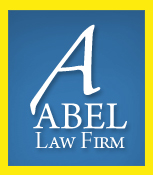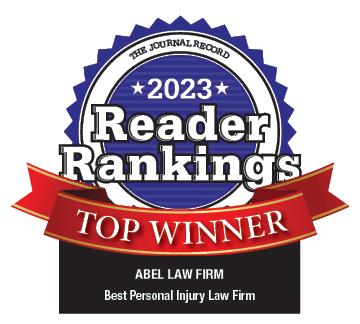Although the actual wording of the Fifth Amendment to the U.S. Constitution says a person shall not be “… compelled in any criminal case to be a witness against himself”, the right has been found applicable to civil actions as well. Natural persons in danger of facing criminal charges do not have to testify, answer interrogatories or produce documents about matters potentially incriminating to them.
What if an employer were to browbeat an employee and extract very damning admissions after she was involved in a wreck in the company vehicle? In a related civil action, parties could obtain the investigation made by the employer. The Fifth Amendment privilege would apply neither to the vicious interrogation nor to requests for production directed to the employer.
Government Action Must Be Involved
The Fifth Amendment does not prohibit all incriminating admissions: “Absent some officially coerced self-accusation, the Fifth Amendment privilege is not violated by even the most damning admissions.” United States v. Washington, 431 U.S. 181, 187, 97 S.Ct. 1814, 1818 (1977); see, U.S. v. Kennedy, 122 F.Supp.2d 1195, 1198 (N.D. Okla. 2000) (privilege implicated only if government compels confession).
Interrogation by Law Enforcement and The Fifth Amendment
The Oklahoma Court of Criminal Appeals in Pierce v. State, 1994 OK CR 45, 878 P.2d 369, 375, quoted from U.S. v. Washington and agreed: “The Fifth Amendment … is not concerned with ‘moral and psychological pressures to confess emanating from sources other than official coercion.’” Statements coerced by non-governmental entities do not violate the privilege. See, Boyd v. State, 1987 OK CR 211, 743 P.2d 674 (physician on child abuse team); Wright v. State, 2001 OK CR 19, 30 P.3d 1148 (private citizen visiting jail); Stohler v. State, 1988 OK CR 52, 751 P.2d 1087 (news reporters outside the courtroom).
On the other hand, an interrogation done on behalf of law enforcement is subject to Fifth Amendment considerations. See, Dodd v. State, 2000 OK CR 2, 993 P.2d 778 (jailhouse informant working for the government); Blanton v. State, 2007 OK CR 37, 172 P.3d 207 (DHS worker acting as an agent of police).
The Fifth Amendment Not Involved if Employer Forces Confession
The Fifth Amendment will not be involved even if a private employer forces a confession. See, Colorado v. Connelly, 479 U.S. 157, 166-170, 107 S.Ct. 515 (1986) (“… outrageous behavior by a private party seeking to secure evidence against a defendant does not make that evidence inadmissible …; [t]he sole concern of the Fifth Amendment, on which Miranda [v. Arizona, 384 U.S. 436, 86 S.Ct. 1602 (1966)] was based, is governmental coercion.”); U.S. v. Stein, 440 F.Supp.2d 315, 333-334 (S.D.N.Y. 2006) (amendment “… restricts only governmental conduct, and will constrain a private entity only insofar as its actions are found to be ‘fairly attributable’ to the government. … [S]tate action will be found where the government commands or significantly encourages a private entity to take the specific action alleged to violate the Fifth Amendment, as well as where the government is ‘entwined’ in the management or control of specific conduct at issue.”); see also, Scoggins v. State, 528 S.W.2d 641, 643 (Ark. 1975) (statement made to employer’s private investigator not protected). The court in Garrity v. New Jersey, 385 U.S. 493, 87 S.Ct. 616 (1967) pointed out how coercive it can be to be interrogated by an employer when one’s job is on the line, but Garrity involved an action by a state attorney general, not a private employer.
A Personal Right
In civil cases, documents may not be compelled from the person who might be incriminated by their production, but they may be obtained from third parties, including their employers or agents. In Giles v. Doggett, 1972 OK 91, 500 P.2d 574, the court held the Fifth Amendment applies to statements compelled in civil cases from the person who might be subjected to criminal charges.
The privilege is personal to the individual who might be incriminated. Rogers v. United States, 340 U.S. 367, 371 (1951); United States v. Nobles, 422 U.S. 225, 233, 95 S.Ct. 2160, 2167 (1975). Therefore, if incriminating documents are in the possession of employees, they, personally, cannot be compelled to produce them – not because their answers were compelled in creating the documents, but because they cannot be compelled to divulge incriminating information in response to government action such as a subpoena or court order. See, United States v. Doe, 465 U.S. 605, 104 S.Ct. 1237 (1984).
Person Not Compelled to Produce Personal Documents
In Giles, 500 P.2d at 576, financial documents were sought from the person who might have been incriminated for defrauding a company — not from a third party. The person was not compelled to produce his own documents. In Rey v. Means, 1978 OK 4, 575 P.2d 116, the appellant had been subpoenaed to produce her own tax returns, divorce papers and other financial information. The court stated, “Compulsion exists in the forced production of documents by a motion to produce or a subpoena duces tecum issued to the person claiming the privilege. The compulsion must be upon the claimant, not a third person. If the person claiming the privilege is not compelled to do something himself, his fifth amendment rights are not violated. An agency relationship does not alter this result. …” Id. at 119.
Employers Cannot Withhold Documents
Therefore, an employer or insurer has no standing to withhold documents that might incriminate its employee or it’s insured and cannot invoke the Fifth on behalf of an employee. See, Flavorland Industries, Inc. v. United States, 591 F.2d 524 (9th Cir. 1979) (no standing for an employer to assert Fifth Amendment rights of employees when depositions of employees and responses to interrogatories in a civil suit were subpoenaed by grand jury). In Hale v. Henkel, 201 U.S. 43, 69-70, 26 S.Ct. 370, 377 (1906), the court said the privilege “… was never intended to permit (a person) to plead the fact that some third person might be incriminated by his testimony, even though he were the agent of such person.”
Lawyers and Accountants Cannot Invoke or Waive the Fifth Amendment for Their Clients
Even lawyers and accountants cannot invoke or waive the privilege for their clients. See, United States v. Lightly, 677 F.2d 1027 (4th Cir. 1982). In Fisher v. U.S., 425 U.S. 391, 397-399, 96 S.Ct. 1569 (1976) tax returns given by clients to their attorneys in order to obtain legal advice were not protected by the Fifth Amendment (although they might have been protected by attorney-client privilege). In Couch v. United States, 409 U.S. 322, 93 S.Ct. 611 (1973), the Fifth Amendment rights of a taxpayer were not violated by the enforcement of a summons directed to her accountant requiring the production of the taxpayer’s records in the accountant’s possession.
Individual Cannot Prevent Third-party Production
An employee cannot claim the privilege for documents belonging to the employer. In a case in which the Securities & Exchange Commission sought financial records, the court stressed, “It is … settled that a person inculpated by materials sought by a subpoena issued to a third party cannot seek shelter in the Self-Incrimination Clause of the Fifth Amendment.” S.E.C. v. Jerry T. O’Brien, Inc., 467 U.S. 735, 742, 104 S.Ct. 2720 (1984).
Protection Only for Natural Individuals
A corporation does not have a Fifth Amendment privilege against self-incrimination. Braswell v. United States, 487 U.S. 99, 105, 108 S.Ct. 2284 (1988). The Fifth Amendment privilege is “limited to its historical function of protecting only the natural individual from compulsory incrimination.” Bellis v. United States, 417 U.S. 85, 89-90, 94 S.Ct. 2179, 2184 (1974).
Contents of corporate records are not privileged under the Fifth Amendment. U.S. v. Rinehart, 539 F.Supp.2d 1334 (W.D.Okla. 2008); United States v. Doe, 465 U.S. 605, 104 S.Ct. 1237 (1984); Fisher v. United States, 425 U.S. 391, 96 S.Ct. 1569, 48 L.Ed.2d 39 (1976). A records custodian may not resist the production of corporate records — even if those records would tend to incriminate the custodian. Braswell, 487 U.S. at 108-109.
As forcefully summed up in Thomas v. Tyler, 841 F.Supp. 1119, 1124 (D.Kan. 1993) (f.n.2): “…[T]he Braswell case makes clear that there is absolutely, positively no circumstance in which corporate records or the act of producing corporate records, by the corporation or any person connected therewith, falls within the scope of the Fifth Amendment privilege against self-incrimination.” Furthermore, “…an individual may not invoke the Fifth Amendment privilege to avoid producing the documents of a corporation or other collective entity that are in his custody, even if his act of producing those documents might be personally incriminating.” Id. at 1128.
The Necessity of Taking the Stand
In Oklahoma, a person must specifically invoke the Fifth Amendment in civil cases. See, Matter of C.C., 1995 OK CIV APP 127, 907 P.2d 241, 243: “In civil cases, the privilege against self-incrimination is not infringed upon by merely being called as a witness and compelled to take the oath. See Oklahoma Dept. of Public Safety v. Robinson, 512 P.2d 128, 133 (Okla.1973). In this regard, the Robinson court stated, ‘The privilege cannot be invoked to excuse the witness from appearing and taking the stand. The privilege of a witness not to incriminate himself is an option of refusal and not a prohibition of inquiry.’ … [T]he privilege against being involuntarily called to the stand as a witness against oneself applies only in criminal cases.”
Comments and Inferences
The Evidence Code, 12 O.S. §2513, prohibits commenting upon or drawing inferences from a claim of privilege. The 1993 Evidence Code Committee noted §2513 and other Oklahoma evidence rules “…do not embrace the privilege against self-incrimination but the principle is applicable. … No cases have been found holding that an unfavorable inference may be drawn from the failure of a person claiming a privilege to testify.”
However, in 1995 in the Matter of C.C., the court did not apply the principle of §2513: “… ‘[T]he Fifth Amendment does not forbid adverse inferences against parties to civil actions when they refuse to testify in response to probative evidence offered against them: the Amendment ‘does not preclude the inference where the privilege is claimed by a party to a civil case.’ … Moreover, ‘[f]ailure of a party who is present at the trial to answer questions based on the privilege against self-incrimination raises a strong inference that the answers would have been unfavorable and damaging to him, and comment to that effect is proper.’” Id. at 244.
Practical considerations
A civil case may proceed even if a party may be subject to criminal prosecution. Evidence cannot be coerced from that party, but can be discovered and placed in evidence when it comes from another source. The question will be whether evidence from third-party sources will be sufficient to prove or defend a claim.
— Lynn Brusin Mares


